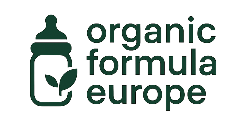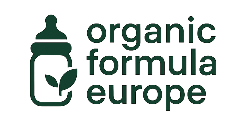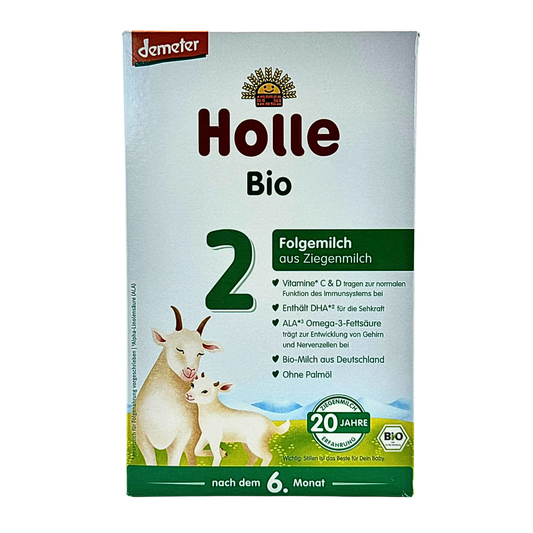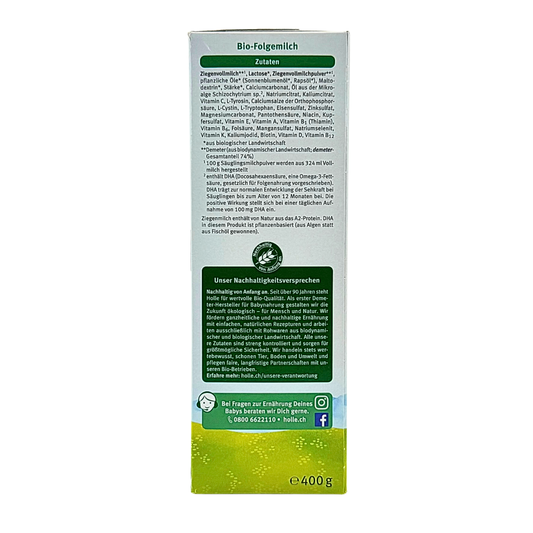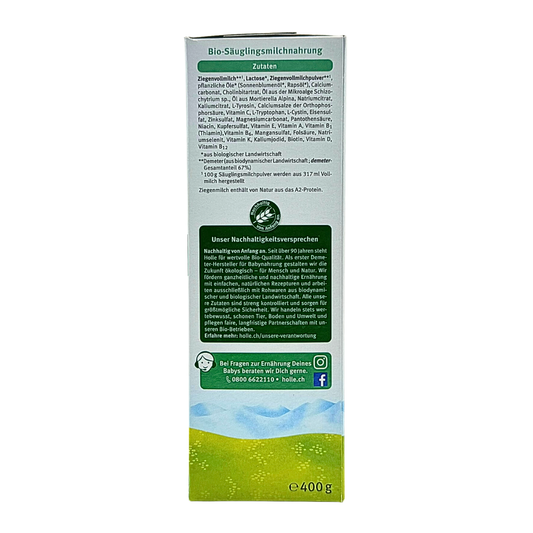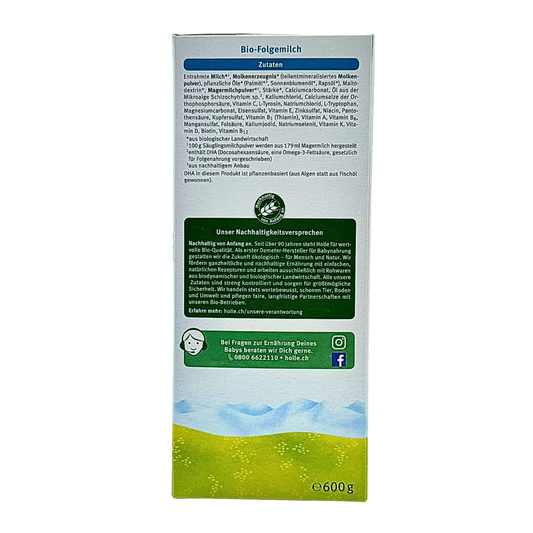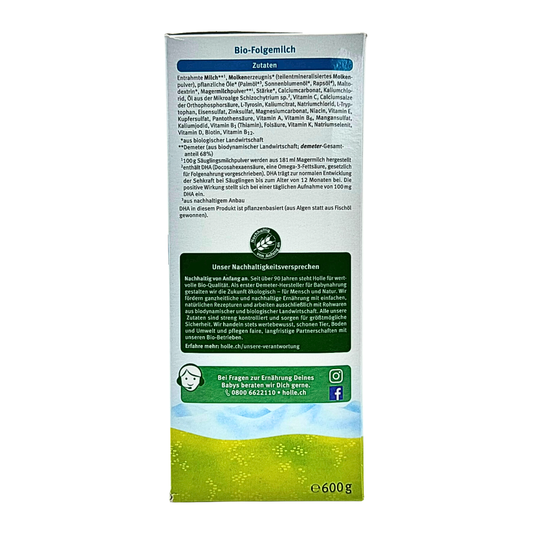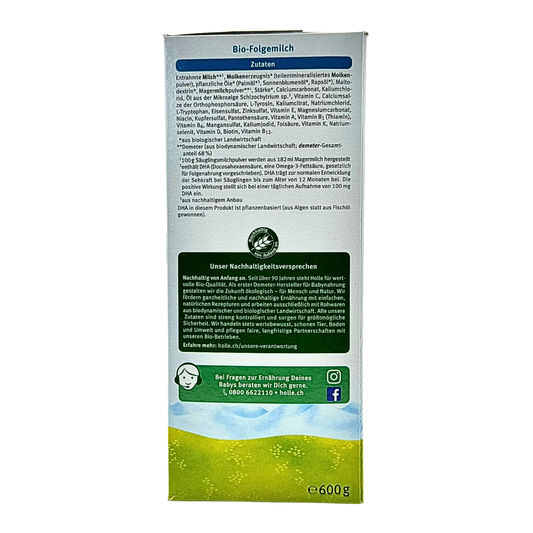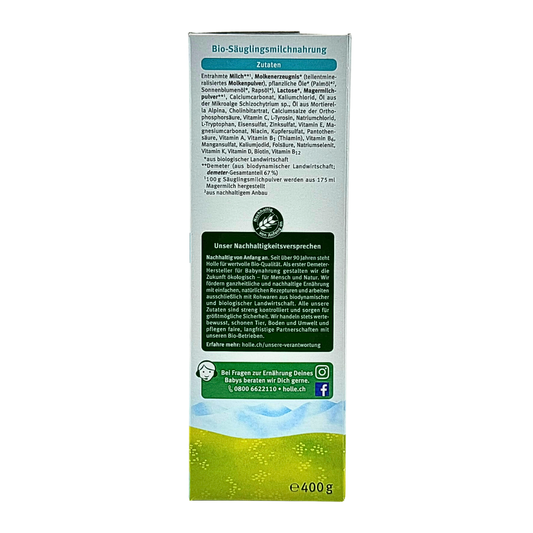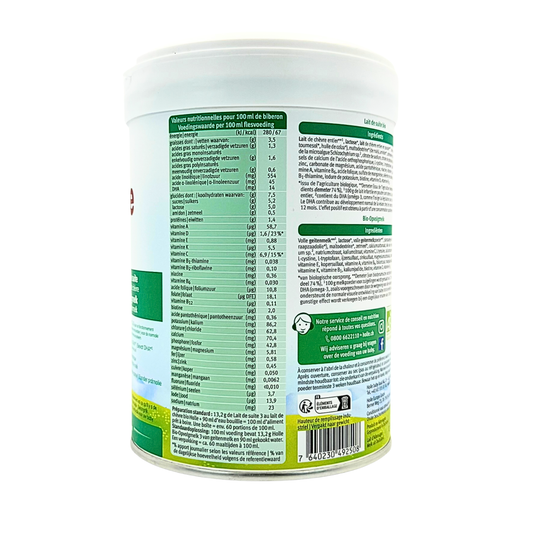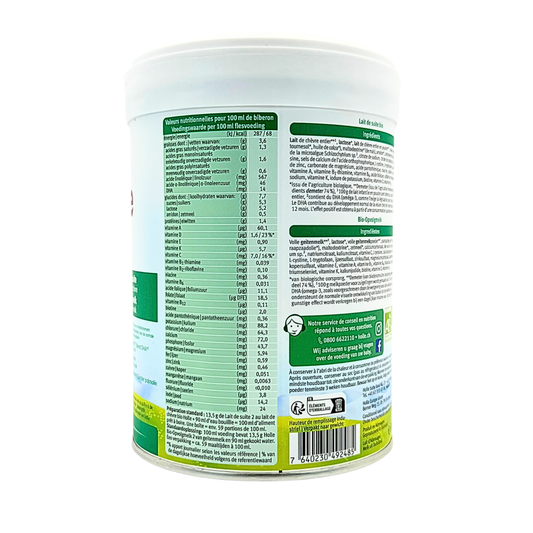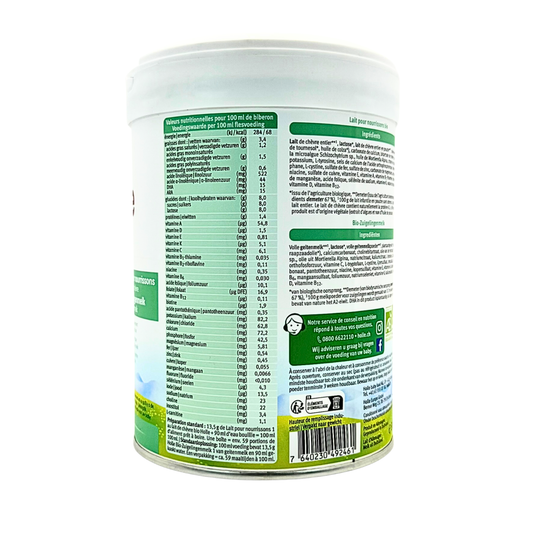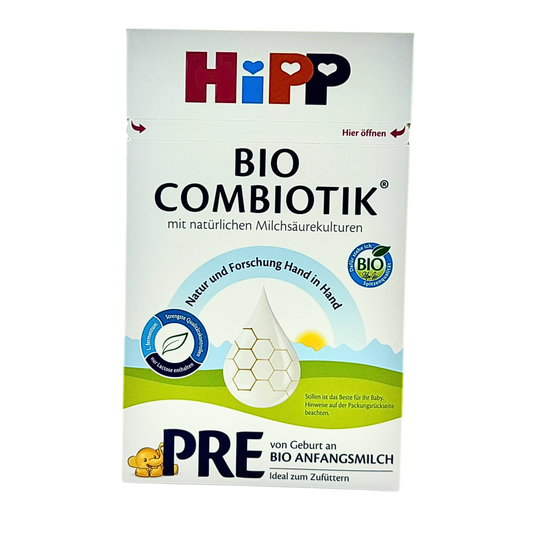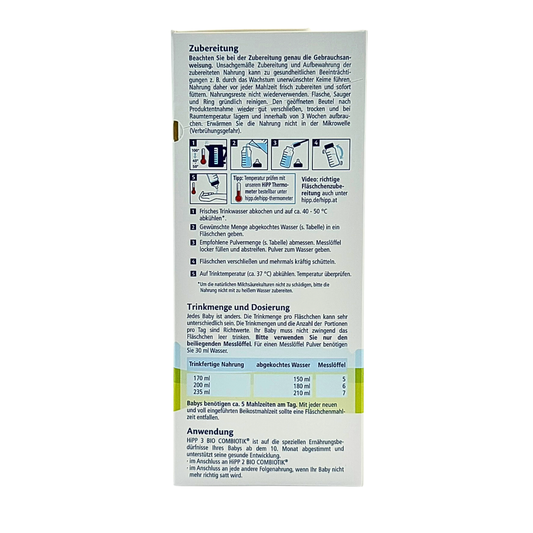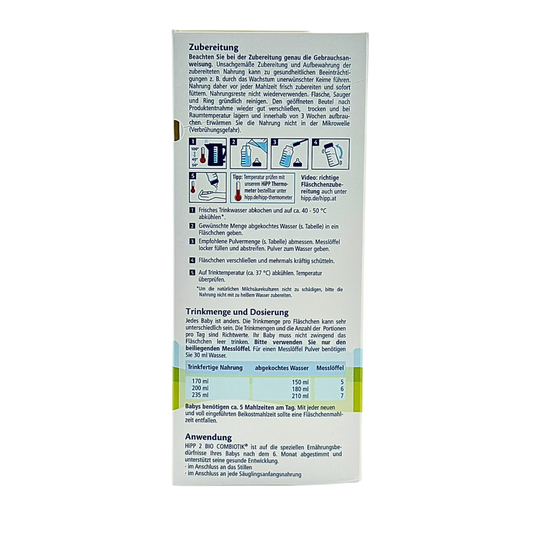Organic Milk For Babies
-
Holle Organic Goat Formula - Stage 2
Regular price From $137.96Sale price From $137.96 Regular price $275.92Unit price / perSale -
Holle Organic Goat Formula - Stage 1
Regular price From $172.45Sale price From $172.45 Regular price $344.90Unit price / perSale -
Holle Organic Baby Formula - Stage 4
Regular price From $139.96Sale price From $139.96 Regular price $279.92Unit price / perSale -
Holle Organic Baby Formula - Stage 3
Regular price From $139.96Sale price From $139.96 Regular price $279.92Unit price / perSale -
Holle Organic Baby Formula - Stage 2
Regular price From $139.96Sale price From $139.96 Regular price $279.92Unit price / perSale -
Holle Organic Baby Formula - Stage 1
Regular price From $137.45Sale price From $137.45 Regular price $274.90Unit price / perSale -
Holle Goat Dutch Formula - Stage 3
Regular price From $184.47Sale price From $184.47 Regular price $368.94Unit price / perSale -
Holle Goat Dutch Formula - Stage 2
Regular price From $184.47Sale price From $184.47 Regular price $368.94Unit price / perSale -
Holle Goat Dutch Formula - Stage 1
Regular price From $184.47Sale price From $184.47 Regular price $368.94Unit price / perSale -
HiPP Organic Baby Formula - Stage Pre
Regular price From $307.92Sale price From $307.92 Regular price $327.92Unit price / perSale -
HiPP Organic Baby Formula - Stage 3
Regular price From $307.92Sale price From $307.92 Regular price $327.92Unit price / perSale -
HiPP Organic Baby Formula - Stage 2
Regular price From $307.92Sale price From $307.92 Regular price $327.92Unit price / perSale
Why Choose Organic Milk Formulas for Your Baby
When it comes to nourishing your little one, choosing the right formula is one of the most important decisions you'll make as a parent. Organic milk formulas offer a pure, wholesome alternative that many mothers trust for their babies' delicate systems. These formulas are crafted from milk sourced from farms that follow strict organic standards, ensuring your baby receives nutrition without unnecessary additives or synthetic ingredients.
The journey of organic milk begins with cows and goats raised on pastures free from synthetic pesticides and fertilizers. These animals graze on natural, organic feed, producing milk that forms the foundation of premium Organic Baby Formula from Europe. This commitment to quality extends throughout the entire production process, resulting in formulas that support your baby's healthy development.
Understanding Different Types of Organic Milk for Babies
Organic Whole Milk Formula Benefits
Organic whole milk formulas provide complete nutrition with naturally occurring fats that support brain development and overall growth. These formulas maintain the creamy richness of whole milk while being carefully balanced to meet infant nutritional requirements. The fat content in organic whole milk formulas closely mimics the composition found in breast milk, making it an excellent choice for babies who need substantial calories for healthy weight gain.
Many parents find that organic whole milk formulas help their babies feel satisfied longer between feedings. The natural fat content aids in the absorption of important vitamins A, D, E, and K, which are essential for your baby's immune system and bone development.
Organic Goat Milk Formula Advantages
For babies with sensitive stomachs or those who struggle with cow milk formulas, organic goat milk presents a gentle alternative. The protein structure in goat milk forms smaller, softer curds in the stomach, making it easier to digest. Many parents report that their babies experience less gas, bloating, and discomfort when switched to HiPP Goat Milk Formula.
Goat milk naturally contains prebiotics and beneficial fatty acids that support digestive health. The A2 protein found in goat milk is often better tolerated by babies who may have sensitivities to the A1 protein commonly found in cow milk. Additionally, goat milk formulas tend to have a mild, slightly sweet taste that many babies readily accept.
Selecting the Best Organic Milk Formula for Your Baby
Key Factors to Consider
Choosing the best organic milk for babies involves considering several important factors. Your baby's age, digestive sensitivity, and nutritional needs all play crucial roles in determining the most suitable formula. Start by observing how your baby responds to their current feeding routine. Signs of digestive discomfort, frequent spit-up, or persistent fussiness may indicate the need for a gentler formula option.
European organic standards exceed those found in many other regions, requiring at least 95% of agricultural ingredients to come from organic farming. This means when you choose European organic formulas, you're selecting products held to the highest quality standards available.
Understanding Formula Stages
Organic Formulas are typically divided into stages that correspond to your baby's developmental needs. Stage Pre or Stage 1 formulas are designed for newborns through six months, providing the precise nutritional balance needed during this critical growth period. As your baby grows, you can transition to Stage 2 formulas, which contain slightly different nutrient ratios to support increased activity and development.
Popular Organic Milk Formula Options
Premium Cow Milk Formulas
Leading brands like HiPP and Holle have established themselves as trusted names in organic infant nutrition. Their cow milk formulas undergo rigorous testing and quality control measures to ensure consistent quality. These formulas include essential nutrients like DHA and ARA for brain development, along with prebiotics and probiotics to support digestive health.
The organic whole milk used in these formulas comes from cows raised on biodynamic farms, where animal welfare and environmental sustainability are paramount. This holistic approach to farming results in milk with superior nutritional profiles and taste.
Specialized Goat Milk Formulas
Brands specializing in organic goat milk formulas have revolutionized options for babies with sensitive systems. Holle Goat Milk Formula stands out for its gentle composition and high-quality ingredients. These formulas maintain all the nutritional benefits of goat milk while being specifically formulated to meet infant requirements.
The production process for organic goat milk formulas involves careful temperature control to preserve the delicate proteins and nutrients. This attention to detail ensures that the natural benefits of goat milk remain intact in the final product.
Making the Transition to Organic Milk Formula
Gradual Introduction Methods
When introducing a new organic milk formula, a gradual transition helps your baby's digestive system adjust smoothly. Start by mixing a small amount of the new formula with your current one, gradually increasing the proportion over several days. This method allows you to monitor your baby's response and ensures a comfortable transition.
Pay attention to your baby's feeding patterns, stool consistency, and overall comfort during the transition period. Most babies adapt well to high-quality organic formulas within a week, though some may need a slightly longer adjustment period.
Signs of Successful Formula Selection
You'll know you've found the best organic milk for your baby when they show signs of contentment after feedings, maintain steady weight gain, and have regular bowel movements. A happy, thriving baby who eagerly accepts their bottle and shows good energy levels throughout the day indicates that their nutritional needs are being met.
Storage and Preparation Guidelines
Proper Formula Handling
Maintaining the quality of organic milk formulas requires proper storage and preparation techniques. Store unopened formula containers in a cool, dry place away from direct sunlight. Once opened, most formulas should be used within four weeks to ensure freshness and nutritional integrity.
Always follow the manufacturer's mixing instructions precisely, as the correct ratio of powder to water ensures your baby receives proper nutrition. Use freshly boiled water that has been cooled to the appropriate temperature, typically around 40°C (104°F), to preserve the formula's beneficial probiotics.
Hygiene Best Practices
Cleanliness is crucial when preparing organic milk formula. Wash your hands thoroughly before handling formula or feeding equipment. Sterilize bottles, nipples, and mixing utensils regularly, especially for babies under three months old. Prepared formula should be used within one hour at room temperature or can be refrigerated for up to 24 hours.
Common Concerns and Solutions
Addressing Digestive Issues
Even with high-quality organic formulas, some babies may experience minor digestive adjustments. Gentle tummy massage, proper burping techniques, and maintaining consistent feeding schedules can help alleviate common issues like gas or mild constipation. If concerns persist, consulting with your pediatrician ensures your baby receives appropriate guidance.
Managing Formula Costs
While organic milk formulas represent a premium choice, many parents find the investment worthwhile for their baby's health and comfort. Buying in bulk, looking for subscription services, and comparing prices across authorized retailers can help manage costs while maintaining quality standards.
FAQS
What makes organic milk formula different from regular formula?
Organic milk formulas are produced from milk sourced from farms that follow strict organic standards, meaning no synthetic pesticides, fertilizers, or GMOs are used. The animals are raised on organic feed and have access to pastures. These formulas also avoid artificial preservatives, colors, and flavors, providing a purer nutrition source for your baby.
Is organic goat milk formula better for babies with sensitive stomachs?
Many parents find that organic goat milk formulas are gentler on sensitive stomachs due to their unique protein structure that forms smaller, softer curds during digestion. The A2 protein in goat milk and its naturally occurring prebiotics often make it easier to digest than cow milk formulas, though individual responses vary.
When should I switch from Stage 1 to Stage 2 organic formula?
Most babies transition from Stage 1 to Stage 2 organic formula around 6 months of age. Stage 2 formulas contain slightly different nutrient ratios to support your growing baby's increased activity and development needs. Always consult your pediatrician before making formula changes to ensure the timing is right for your baby.
Can I mix organic cow milk and goat milk formulas?
While it's generally safe to mix different organic formulas during a transition period, it's not recommended as a long-term feeding strategy. Each formula is carefully balanced to provide complete nutrition on its own. If you're switching formulas, use a gradual transition method over several days to help your baby adjust.
How long can I keep prepared organic formula?
Prepared organic formula should be used within one hour if kept at room temperature. If refrigerated immediately after preparation, it can be safely stored for up to 24 hours. Always discard any formula left in the bottle after a feeding, as bacteria from your baby's mouth can contaminate the remaining formula.
Are European organic milk formulas FDA approved?
While European organic formulas meet strict EU organic standards that often exceed FDA requirements, they are not specifically FDA approved for sale in the US market. However, many parents choose these formulas for their high quality standards and excellent ingredient profiles. Always purchase from reputable sources to ensure authenticity and proper storage.
